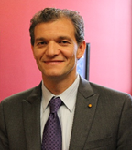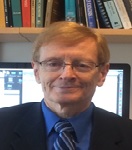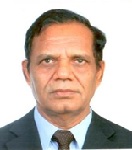Day 2 :
Keynote Forum
Mahdi M Abu-Omar
Purdue University, USA
Keynote: Polymers from sustainable and renewable sources
Time : 09:00-09:25

Biography:
Abu-Omar completed his PhD from Iowa State University and postdoc from Caltech. He is the R. B. Wetherill Professor of Chemistry at Purdue University, and thernassociate director of the Center for Catalytic Conversion of Biomass to Biofuels (C3Bio), an Energy Frontiers Research Center. Mahdi is the Founder and Presidentrnof Spero Energy, Inc., a green specialty chemicals company and a technology provider for the manufacture of high value renewable chemicals from biomass. Hernhas published more than 100 original research papers in peer-reviewed journals. Dr. Abu-Omar is a Fellow of the American Association for Advancement of Sciencern(AAAS).
Abstract:
Polymers have truly transformed our way of life from electronics to food packaging. Annual production of polyolefins alone isrnprojected to grow to nearly 170 billion kg by 2018. Phenolic resins are another family of polymers and oligomers composedrnof a wide range of structures based on the various reaction products of phenols with formaldehyde. Applications vary fromrncommodity construction materials to high technology applications in electronics and aerospace. Worldwide consumption ofrnphenolic resins exceeds 10 million tons; the largest volume application is in plywood adhesives and accounts for ca. 50% ofrnU.S. consumption. Given that both of these major polymer classes are derived from petroleum-based monomers and withrnincreasing environmental constraints, major opportunities can be explored in research and commercialization for making highrnperformance materials from renewable sources. Potential approaches for making polymers with outstanding durability andrnease of formability to complex contours will be discussed; and how monomers that do not compete with food can be utilizedrnand expanded. A balance to meet performance, sustainability, and biodegradability must be considered.
Keynote Forum
Craig L Hill
Emory University, USA
Keynote: Green syntheses to green fuel. Lessons that translate from one to the other

Biography:
Craig L Hill trained at MIT (PhD; Whitesides) and Stanford (NSF PD; Holm) and is the Goodrich C. White Professor of Chemistry at Emory University. He studies\r\ncatalysis (green oxidations; multielectron processes, decontamination, others), mechanisms and materials. He has trained ~130 graduate students and postdocs.\r\nGoogle Scholar lists ~340 journal publications that are cited 20,065 times (H index = 72). Three of these already exceed 1000 citations. He has been the recipient\r\nof three ACS awards, many others and is a member of two academies
Abstract:
Key lessons learned during the development of green chemistry over the last 25 years have several direct ties to green energy\r\nchemistry. Among these include approaches to optimize both turnover rates and product selectivity in catalytic reactions\r\n(organic transformations and energy production). Another is the systematic manipulation of oxygen chemistry (from H2O\r\nto H2O2 to O2) to avoid selectivity-deleterious and energetically-undesirable oxygen-based intermediates. A third involves\r\nparadigm development for catalyst stability. (Recall that selectivity in all catalytic reactions depends on many parameters\r\nbut chief among them is retention during turnover of the geometrical and electronic structure of the catalyst itself.) A forth\r\nbridge between the 2 large research areas is incorporation of green design principles in reactor design and other aspects of the\r\nreactions.
Keynote Forum
J S Yadav
Indian Institute of Chemical Technology, India
Keynote: Green methods for new chemical entities (NCE’s)
Time : 09:00-09:25

Biography:
J S Yadav completed his PhD from M.S. University, Baroda and Postdoctoral studies at Rice University, Houston, USA. He was the Director of the prestigious Indian Institute of Chemical Technology, Hyderabad for over a period of 9 years and presently is serving as CSIR Bhatnagar Fellow at the same Institute, a premier scientific research organization. He has published more than 1100 papers in reputed journals and has been serving as an Editorial Board Member of repute. He received several prestigious awards and honors like CSIR Shanti Swarup Bhatnagar Award in the year 1991, Fellow of Indian Academy of Sciences (FASc) in the year 2010 and Highest honor as Laureate of the 22nd Khwarizmi International Award for his excellent contributions as a research scientist.
Abstract:
Water mediated organic reactions are very useful in view of environmental consciousness. Therefore, organic transformations that are performed in water will be discussed in details. In particular, transition metal catalyzed transformations in the synthesis of heterocycles will be discussed. The use of water tolerant Lewis acids such as indium salts, scandium triflate will be demonstrated for the C-C, C-N and C-S bond formation. In addition, a few indium-mediated transformations like Barbier type allylation reaction of carbonyl compounds, epoxides, acetals, reduction of N-oxides and reductive alkylations of azides which are performed in water will be discussed as they are simple, convenient and environmentally friendly.
